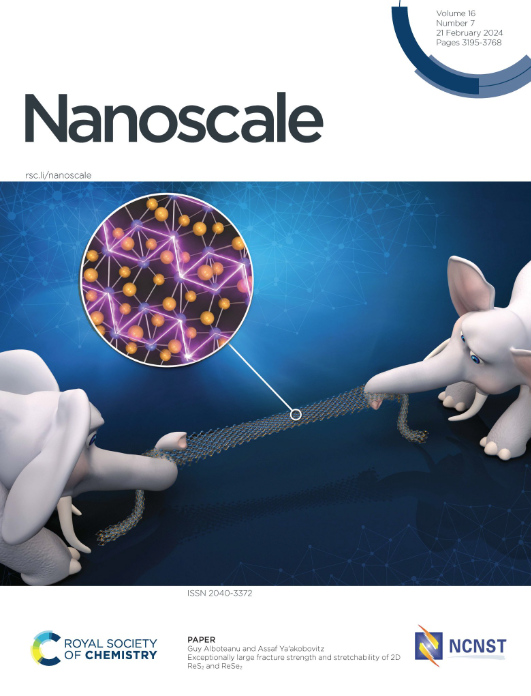Cost-efficient folding of functionalized DNA origami nanostructures via staple recycling
IF 5.8
3区 材料科学
Q1 CHEMISTRY, MULTIDISCIPLINARY
引用次数: 0
Abstract
DNA origami nanostructures are powerful molecular tools for the controlled arrangement of functional molecules and thus have important applications in biomedicine, sensing, and materials science. The fabrication of DNA origami nanostructures commonly requires a high excess of staple strands, leading to material waste and high costs, especially when large numbers of modified staples are to be incorporated. Here, we present a method for recycling non-modified as well as biotinylated and fluorophore-modified excess staple strands using molecular weight cut-off (MWCO) ultrafiltration and reusing them in subsequent folding reactions. The structural integrity of the folded DNA origami nanostructures as well as the incorporation and functionality of the introduced modifications are maintained over at least five folding cycles. The resulting reduction in staple costs due to staple recycling reaches 33 % over five folding cycles, with a theoretical maximum of 41 % for large numbers of cycles. This cost-effective and sustainable approach is straightforward to implement in any given DNA origami fabrication pipeline and particularly attractive for applications requiring large numbers of expensive modifications where substantial reductions in absolute costs can be achieved in this way.经短纤维回收的功能化DNA折纸纳米结构的成本效益折叠
DNA折纸纳米结构是控制功能分子排列的强大分子工具,因此在生物医学,传感和材料科学中具有重要的应用。DNA折纸纳米结构的制造通常需要大量过量的短钉链,导致材料浪费和高成本,特别是当需要加入大量修饰的短钉时。在这里,我们提出了一种利用分子量切断(MWCO)超滤回收未改性以及生物素化和荧光团修饰的多余短纤维链的方法,并在随后的折叠反应中重复使用它们。折叠DNA折纸纳米结构的结构完整性以及引入的修饰的结合和功能在至少五个折叠循环中保持不变。在5个折叠周期内,由于短纤维的回收,短纤维成本降低了33%,而在大量循环的情况下,理论上的最大降幅为41%。这种具有成本效益和可持续发展的方法可以直接在任何给定的DNA折纸制造管道中实现,对于需要大量昂贵修改的应用特别有吸引力,其中绝对成本的大幅降低可以通过这种方式实现。
本文章由计算机程序翻译,如有差异,请以英文原文为准。
求助全文
约1分钟内获得全文
求助全文
来源期刊

Nanoscale
CHEMISTRY, MULTIDISCIPLINARY-NANOSCIENCE & NANOTECHNOLOGY
CiteScore
12.10
自引率
3.00%
发文量
1628
审稿时长
1.6 months
期刊介绍:
Nanoscale is a high-impact international journal, publishing high-quality research across nanoscience and nanotechnology. Nanoscale publishes a full mix of research articles on experimental and theoretical work, including reviews, communications, and full papers.Highly interdisciplinary, this journal appeals to scientists, researchers and professionals interested in nanoscience and nanotechnology, quantum materials and quantum technology, including the areas of physics, chemistry, biology, medicine, materials, energy/environment, information technology, detection science, healthcare and drug discovery, and electronics.
 求助内容:
求助内容: 应助结果提醒方式:
应助结果提醒方式:


